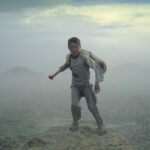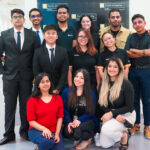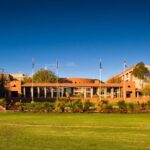Chancellor, Graduates and guests.
Thank you for inviting me to speak at this Graduation ceremony this evening. I begin tonight remembering the 13th February as the second anniversary of the Prime Minister’s apology of behalf of us all to the Indigenous people of Australia. I pay my respects to the elders of the Nyunngar people of Western Australia and acknowledge again that apology as a significant moment in our reconciliation.
Watching you all assemble in your regalia, and then cross the stage to receive the acknowledgment of your achievement from your families your peers and your teachers, reminded me that we are all here tonight participating in an ancient tradition.
It is a tradition maintained in universities over the centuries which by way of its formality, voluminous and colourful robes and very quaint hats underlines the connection of our history to our future. The coincidence of the ancient and the new emphasises both the importance of the knowledge we have created so far and the connection to the knowledge which still remains to be created and explored by all of you as part of your ongoing learning and contribution to your communities.
Reflecting on the variety of regalia caused me to remember my own early graduation. I can recall this with fond memories of friendships, satisfaction and jubilation of the huge task completed. BUT also because of my mothers very great excitement at the event as I was the very first person in my family to attend a university – and she told everyone we knew and also lots of people we didn’t know. She was insistent that I wear a good dress and good shoes (it was the 70s and believe it or not I was in a flower child hippy phase and wished to wear a long flowing flower power dress and no shoes! Fortunately my mother prevailed and the photographs while suitably embarrassing are fortunately not humiliating. So bear this in mind graduates, as you have your photographs taken tonight – your children will look at them in time to come and they will probably laugh.
Many might tell you that tonight is the end of a great journey but in time I hope you will begin to agree with me that your graduation is, rather, the beginning of a great journey, a rite of passage to a new life predicated on your own endeavours and success of achieving your award. At its most basic what we are celebrating tonight is this great gift of your education, as a graduate or postgraduate, which you have earned through hard work and, as our Chancellor pointed out earlier, it has been achieved with the very significant support of your families, your friends and colleagues and your teachers and mentors, some of whom are on the stage with me this evening.
BUT is all that hard work and knowledge creation worth it? I was caused to pause when a group of students I was having lunch with on this very campus wondered at the value of their education. “Everyone has a degree these days” one said – is all this hard work going to be worth anything in a world that appears to have gone crazy another wondered.
We had a very interesting conversation but I ended up wondering how I might demonstrate to these students, who are still a way off graduating, what the value of their experience might be. So I went to a piece I once found on the internet and I want to share some of that with you tonight.
Imagine, ladies and gentlemen that we could shrink the World’s 7 billion or so people down to one village of precisely 100 people BUT (and its an important but) with all of the existing human ratios and proportions remaining the same. The mathematicians, and statisticians amongst you would be able to compute all of this but I have taken what I am about to say from the internet where it is attributed to someone who wishes to remain anonymous.
So – imagine – we have one village, one hundred people proportioned to reflect a global population and it works out roughly as follows:
- 57 people from the Asian continent, 21 Europeans, 8 Africans and 14 from the Western Hemisphere.
- 52 would be female and 48 male
- 70 would be non-Christian, 30 would be Christian
- 6 people would possess 60% of the wealth, the remaining 40% shared by the other 94 people
- and ALL of these 6 would be citizens of the USA
- 80 people in our village would live in substandard housing,
- 50 would suffer from malnutrition and
- 70 out of the 100 would be unable to read.
- 1 of us would be near death and 1 near birth and
- Graduates, ONE, YES ONLY 1, would have a University education and
- this one person would also own a computer.
So now let’s reflect on your place in the Universe and the very significant advantage you really have as you start the great journey of the rest of your life. You can read and you have a higher education. Sitting here tonight what would you see as the responsibilities of the various constituents in the village? What do you suppose the educated citizen in the village should do for the 80 people who live in bad housing, or the half of the village who are malnourished or the 70 who are unable to read? How will the access to information on the computer be used to benefit the village I wonder?
I have raised this scenario in conversations with students over the years. Everyone always has ideas of how to help the village of 100 and it’s never long before we had decent housing, eradicated poverty, and everyone without exception is able to read. It seems easy with only 100 and when it’s only a hypothetical discussion.
Our reality, the here and now is much different. None of this is more clearly articulated than by the disaster in HAITI which we have all watched on our TVs and on the net these past weeks. How will we be able to balance the advantages the few have (that includes most of you sitting here and graduating tonight) with the enormous disadvantages of the greater proportion of people with whom we need to share the planet. When it was analysed, most famously by James Wolfenson an Australian and former Chair of the World Bank, he found that the single most consistent divider between advantage and disadvantage was EDUCATION. And so it remains today.
So my challenge to you tonight is that we need to start somewhere. While Wolfenson underlined the great divide that education brings to our world he also urged those with advantages of wealth and education to look beyond their own horizons and think of how to live in our communities at sustainable levels. As the graduate of your village can you afford in the longer run to ignore the remaining 99 people in your village?
These are not simple issues and most of us will not be in a position to effect enormous change BUT we can do things at our community level.
What do we all do collectively and individually to ensure that we do contribute to the good of our communities in Australia and the region?
One inspiring example I am constantly reminded of is the Qantas air cabin crew member who came up with the Change for Good campaign where all travellers are asked to donate their unused coins which are then sent to various charities around the world. I believe that over $50million dollars has been raised collectively from this scheme. And one person dreamed it up and put it into a reality that has helped countless numbers of people in our region to an education and a better life.
While we may not be able to solve world poverty today we can actually change the future by becoming good citizens as the young Qantas crew did with his idea.
This citizenship I believe is at the heart of Curtin values and mission which includes a commitment to engaging in your wider community emphasising service, relevance, ethical behaviour and the development of students and staff as citizens of the world.
I also know that this mission is a reality because as part of your education at Curtin many of you have been very good citizens. The reputation of the Curtin Volunteers and the Curtin Radio volunteers is well known by all those who have benefited over the years. Many of you will have participated in the John Curtin weekends working in regional communities or have been involved in collecting tin caps to make wheelchairs, delivering food for the foodbank or in a host of other things I could go on – the web lists many many examples. It seems Curtin graduates do understand their place in the community.
In summary then I believe that education and community citizenship are the tools we most need as we wrestle with how best to approach our future, be in to withstand a Financial Crisis, the devastation in Haiti or a pandemic, or indeed the metaphorical fire in our own backyard. What the solutions are I do not know, but I urge you as you step forward to take your place in the world to remember your advantages, especially the gift of your education, and the spirit of good citizenship you have learnt at Curtin. Use those advantages wisely to benefit yourself and also your community.
Congratulations and Good Speed. You have my very best wishes for your individual and collective futures.
Thank you.


